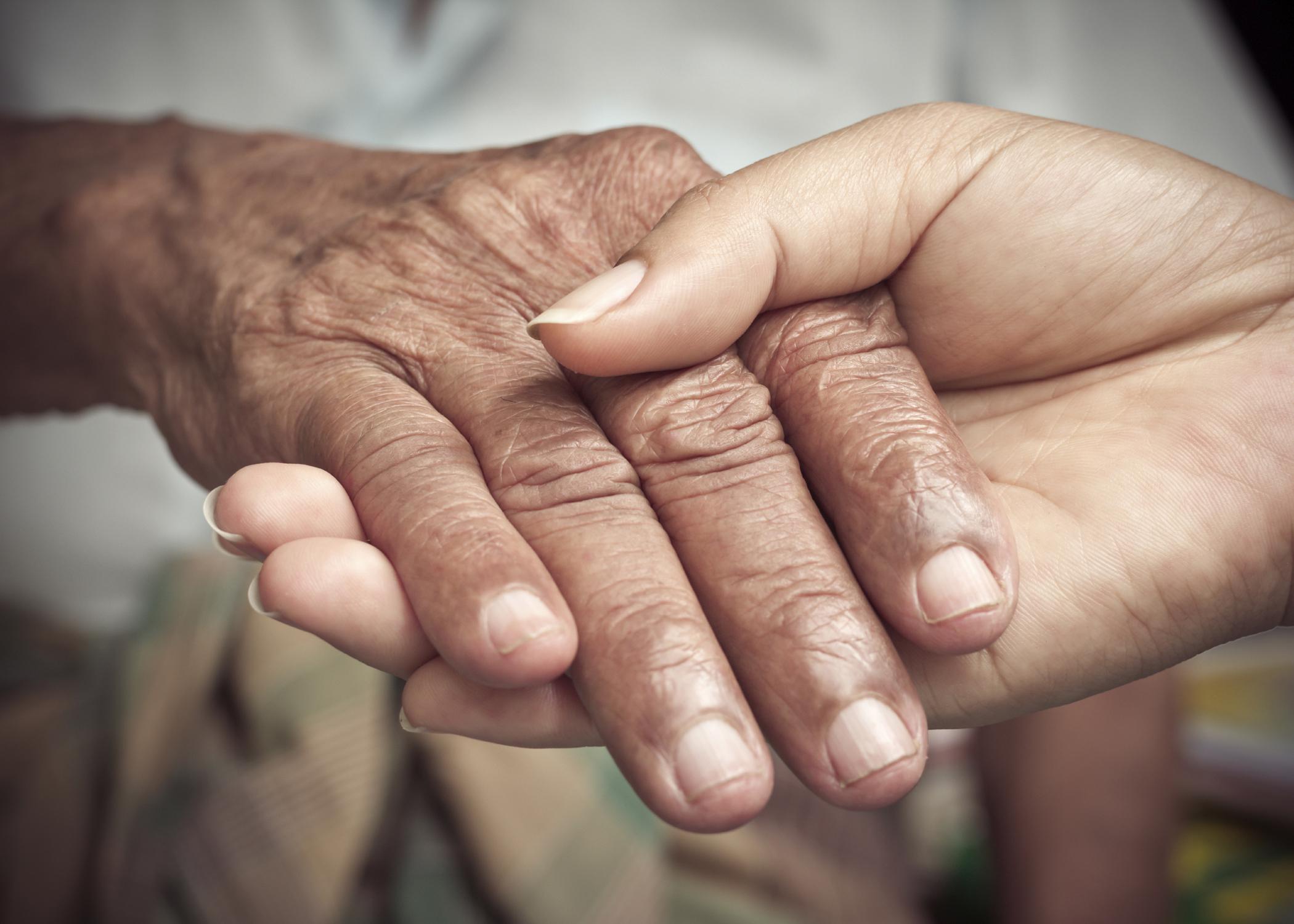Information Possibly Outdated
The information presented on this page was originally released on May 6, 2015. It may not be outdated, but please search our site for more current information. If you plan to quote or reference this information in a publication, please check with the Extension specialist or author before proceeding.
Caregivers should manage stress, balance other duties
May is Older Americans Month …
RAYMOND, Miss. -- Caring for an aging loved one can be overwhelming, especially when balancing the task with family obligations, work and self-care.
The challenges caregivers face are different for everyone and depend on several factors, such as the physical and cognitive needs of the older adult, financial resources, family relationships, work and family obligations and the health of the caregiver, said Joe Wilmoth, associate professor of human development and family studies at Mississippi State University.
Caregivers should strive to make time for themselves, handle physical and emotional stress, maintain healthy family relationships, manage finances, and understand medical processes and procedures.
“Communication is vital for dealing with many of these issues,” said Wilmoth, who is also a researcher with the Mississippi Agricultural and Forestry Experiment Station. “For example, in some families one person may provide most of the caregiving and resent that other family members are not doing their share. It’s possible no one else is available or willing to help, but sometimes other family members would do more if they understood the situation more clearly. An open, non-judgmental discussion of who can do what is a good place to start.”
Ann Sansing, community health coordinator with the MSU Extension Service, said holding regular family meetings is a good way to diffuse conflict and relieve the pressure on a single individual.
“Use this time to divide up the labor between family members,” she said. “If distance divides siblings, use free conference calling options to arrange caregiving plans. Assign duties relative to a person’s interests, skill set and availability. This will create a more positive experience for everyone. If necessary, financial issues can be discussed also.”
Caregivers should consider meeting with their employers to discuss flextime schedules and the availability of an employee assistance program that offers support to caregivers.
Ignoring personal stress can lead to burnout, depression, fatigue and resentment that reduces the quality of care, Sansing said. Make time to relax by exercising, playing sports, meditating, gardening, reading or engaging in other enjoyable activities. Adequate sleep and nutrition are also important.
Caregivers also should think about joining a support group. If the caregiving situation involves special circumstances, such as a loved one with memory issues or mental illness, choose a group that focuses on these issues.
“Everyone involved in the group has empathy and can identify with your specific needs,” Sansing said. “It is healthy and important to voice your feelings, yet not feel guilty.”
Another way to reduce stress is to learn as much as possible about the senior’s condition or illness and organize important information for the care recipient. Attend workshops and trainings on caregiving and the loved one’s condition. Create a notebook with conditions, treatments, medications and dosages, and doctors’ names, phone numbers and addresses. Keep financial and personal information, such as insurance and social security cards, in the notebook for quick reference.
Caregivers should understand and set limits and ask for and accept offers of help, Wilmoth said.
“Acknowledge what you can and cannot do,” he said. “Don’t be afraid to ask for help or assistance. When someone says, ‘Is there anything you need?’ Answer, ‘yes.’”
Develop a list of daily chores immediate family can help with in the home and another list of activities friends, co-workers and church members can do. A “pack-the-freezer” party or gift cards can help provide food. Other volunteer activities that can be helpful are yard maintenance, respite care, grocery shopping, taking the care recipient to doctor’s visits, writing thank you notes and helping with pet care.
If the demands of caregiving exceed the set limits, families can consider hiring supplemental help. Senior daycare or an in-home care provider can help caregivers continue to work and provide a safe, secure environment for their loved one.
“In-home care providers and senior daycares can help with meal preparation, household chores and personal care,” Sansing said. “Sometimes assisted living centers may be the best solution if the care recipient needs daily support, is missing social support, safety concerns exist, in-home costs cannot be maintained, or there is caregiver fatigue.”
Always include the care recipient in the conversation and present them with options if possible, Sansing said. When hiring an in-home care provider, check their credentials and licensing and do a background check. Observe how the potential caregiver interacts with the senior. Draw up a contract that outlines the caregiver’s duties and explains the payment and tax-withholding procedures.




